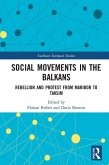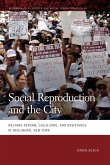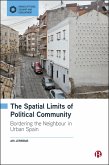Many Turkish cities have witnessed increasing micro and macro-spatial dimensions in urban social movements, shaping urban space over recent decades. Typical Turkish urban
social movements have generally shared the same goals, been based on actors' lower-class backgrounds and locally-rooted associations, and have employed similar types of action and strategies against authority. However, the Gezi Park protests were of a singular and different character. This book aims to explore the Gezi Park protests, and discusses their role in changing the character of urban social movements in Turkey, by asking the following questions: What social, political, and economic forces changed the structure of the protests over the years in Turkey? In turn, how has the Gezi Park movement shaped our understanding of new Turkish urban social movements?
social movements have generally shared the same goals, been based on actors' lower-class backgrounds and locally-rooted associations, and have employed similar types of action and strategies against authority. However, the Gezi Park protests were of a singular and different character. This book aims to explore the Gezi Park protests, and discusses their role in changing the character of urban social movements in Turkey, by asking the following questions: What social, political, and economic forces changed the structure of the protests over the years in Turkey? In turn, how has the Gezi Park movement shaped our understanding of new Turkish urban social movements?
Dieser Download kann aus rechtlichen Gründen nur mit Rechnungsadresse in A, D ausgeliefert werden.









